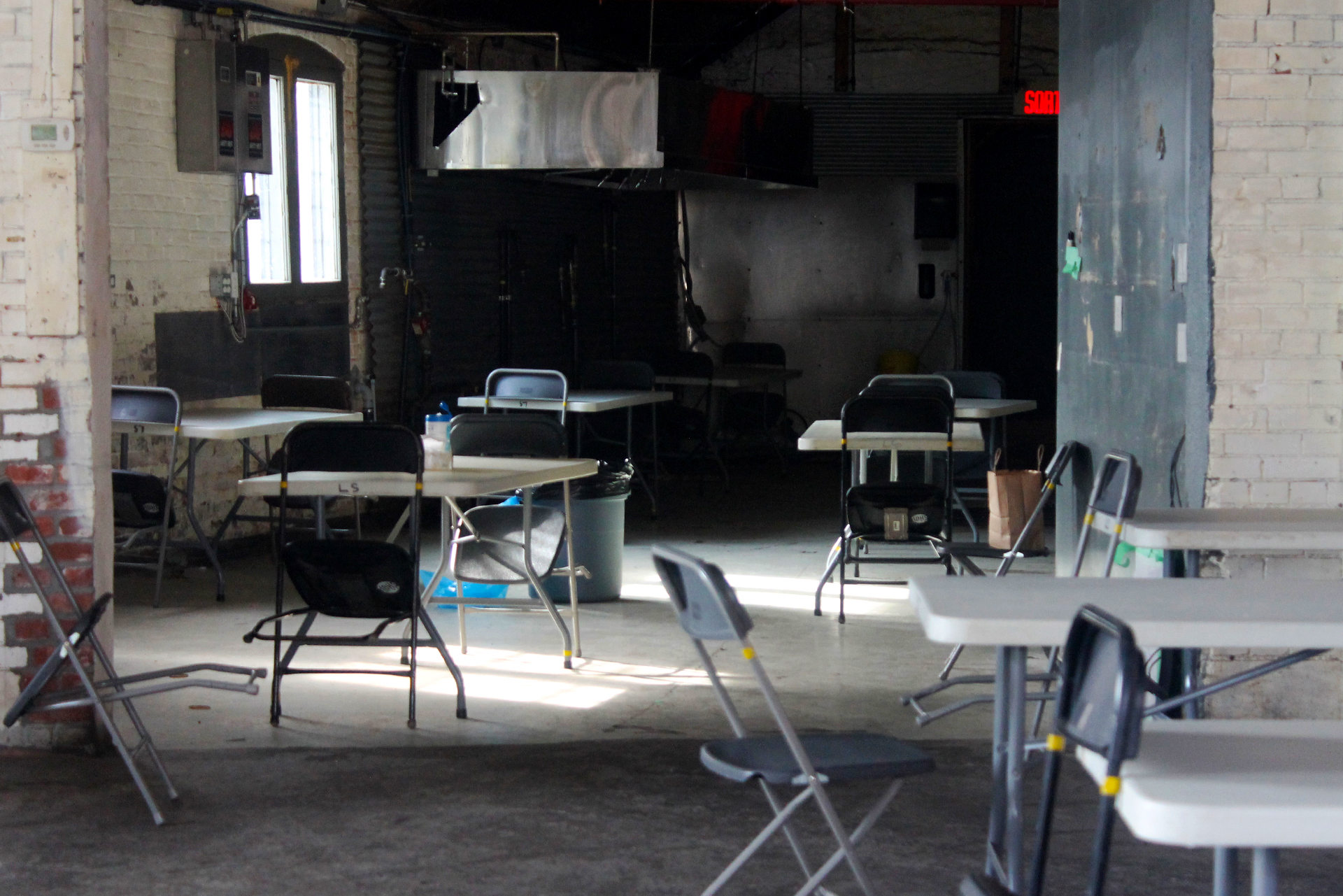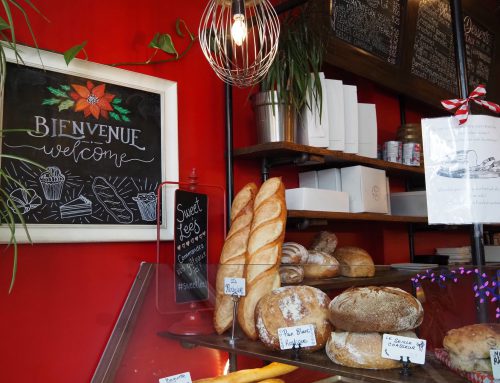BY Elizabeth Spinozzi & Britanny Giuseppe-Clarke
The pandemic has taken its toll on Montreal restaurants. One of those places is Grumman ’78, which closed its doors permanently on Oct. 26, following a break beginning Sept. 27.
“The Grumman was the first to serve fusion-style, restaurant-quality Tex-Mex food in the streets of Montreal,” co-owner Gaelle Cerf says. “We changed the laws in Montreal for food trucks.”
As Vice-President of the Quebec Food Truck Association, Cerf was a pioneer for street cuisine, getting various cuisines on wheels at festivals and events.
However, after 10 years of operation and just months after their best financial year, they discovered they could not survive the ongoing and unpredictable restrictions that the pandemic imposes.
“The Grumman’s business model is high volume with a lot of people, and with a pandemic spreading over one to three years, or maybe even more, and limitations to social gatherings, our model does not work, so we would have eventually closed our doors,” Cerf says.
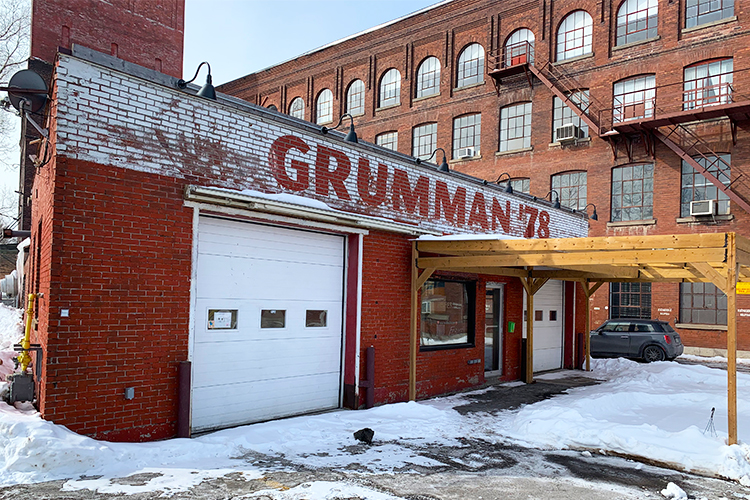
The Grumman ‘78 lot, which used to host anything from weddings to drag brunches, is now host to parking meters and nearby workers. Photo by Elizabeth Spinozzi.
After their success in 2019, owners Cerf and Hilary McGown were expanding to have a second kiosk in the city, on top of their Time Out Market location and their restaurant headquarters on Courcelle St. Having invested into their business just months before having to shut it down only made things more difficult.
“Even when the lockdown initially began, we were quick to switch to take-out… [going] online within about one week and serving that way during the first confinement,” says Cerf. “But the take-out revenues were not enough, just because of the rent.”
Cerf explains that a restaurant’s revenue needs to be 200 times its rent in order to make ends meet. Grumman’s rent was $10,000 per month, so it would have to sell over $2 million in tacos.
“You can do as much take-out as you want, but without weddings or big events or festivals, you’re not selling that many tacos,” says Cerf.
Making rent has been an ongoing challenge for restaurateurs attempting to keep their doors open. Whether they try to adapt their business model or not, and whether there is financial aid available, are important factors to consider.
“When we opened as a take-out place in March, we worked too hard and did not lose enough money to qualify for the government rent subsidies,” says Cerf. “We received help for salaries, but we had to lose more than 75 per cent to qualify for rent aid, and our losses were at 65 per cent. We saw this as our heads up because not qualifying for the government rent aid, and having our accountant clarify our losses and our limited resources left, we would have maybe moved forward with our eyes closed.”
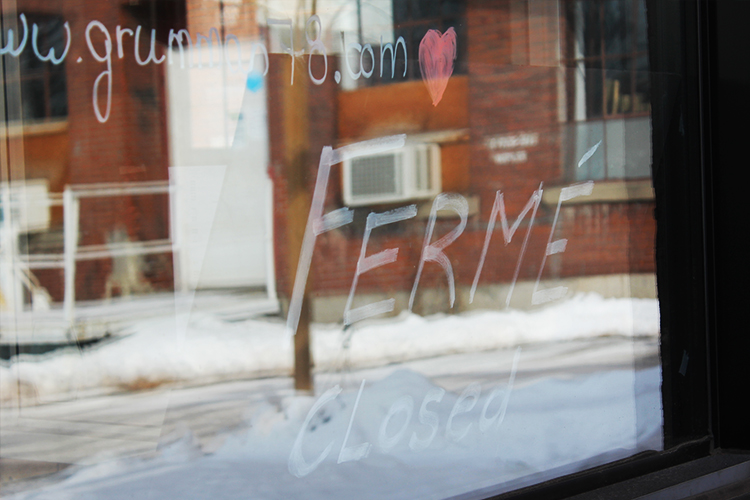
Grumman ‘78 closed its doors officially Sept. 27. Since, Cerf feels it was the best decision, but also their only one. Photo by Britanny Clarke.
Although there are both the federal government and non-governmental organizations providing financial aid for local businesses, there are several eligibility requirements.
Restaurants Canada estimates that without continued and additional support, 40 per cent of independent restaurants might not survive beyond March 2021. That’s after roughly 10 per cent of establishments closed for good during the first six months of the pandemic.
On Oct. 8, the City of Montreal announced new emergency assistance in the form of loan forgiveness for bars and restaurants. Eligible small businesses can be reimbursed for up to 80 per cent of the various fixed costs, such as rent or interest on mortgages, and fees for public services such as electricity and gas.
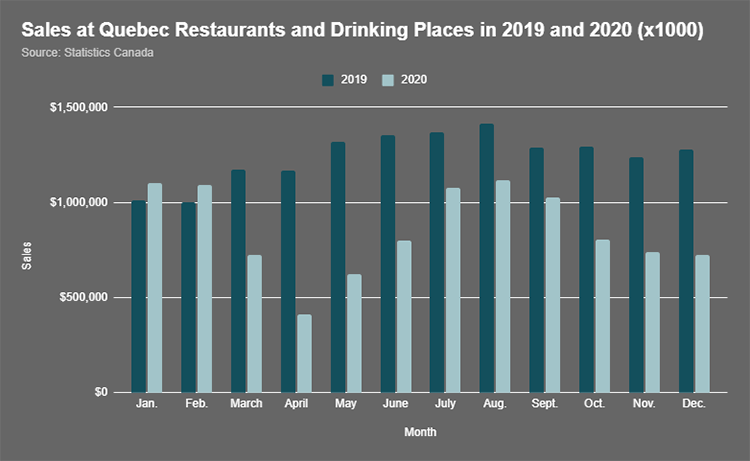
Restaurant and bar sales in Quebec have suffered dramatically due to the inconsistency of the essential business measures. Media by Elizabeth Spinozzi.
Several non-governmental organizations were also created during the pandemic to support Montreal’s restaurants, bars, and their workers. One of those is the Montreal Restaurant Workers Relief Fund (MTLRWRF), created to support restaurant workers in March 2020.
Many service industry workers across Montreal face uncertainty and some have turned away from the restaurant industry. Video by Britanny Clarke.
“We’ve raised almost $200,000 and helped over 900 workers,” says co-founder Kaitlin Doucette of MTLRWRF. Yet, with all possible assistance, restaurants keep closing, largely due to rent and having to reinvent the business model.
“Looking back, the fate of restaurants is still as uncertain [as in October], so we are glad to have closed when we did to avoid utter catastrophe,” Cerf says.
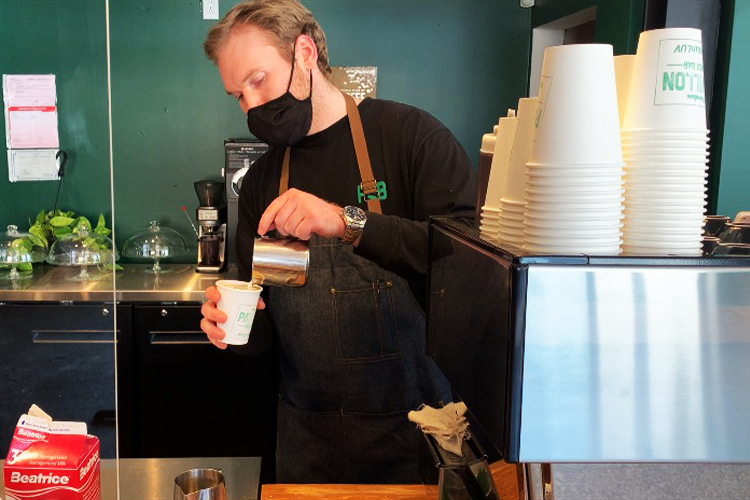
Tom Siluk, manager of Pavillon Snack Bar, prepares a latte for a customer in Verdun on Saturday, Feb. 13. Photo by Elizabeth Spinozzi.
Restaurateur Andrew Soulis felt the pressures of adapting to a COVID-19.
Soulis’ first restaurant, Café Le Mastiff, was open for three years before the pandemic forced him to close the doors permanently.
“It was situated in a commercial building, which is what made it hard to operate. It was doing OK, [but] we were not laughing to the bank [despite] everyone still getting paid. I chose to close this location and relocate to where we are now [in Verdun] because I did not foresee people returning to the building for a long time and just didn’t see a way to keep going in that location.”
Café Le Mastiff was a lunch spot on Saint-Patrick St., which served sandwiches, soups-of-the-day, and their signature treat, banana bread, which have all been brought over to his new restaurant in Verdun.
“I decided to target an up-and-coming neighbourhood,” Soulis says. “I chose Verdun, a location with a lot of foot traffic.”
“It has always been an idea for me since my beginnings in restaurants 20 years ago. The dream has always been a local joint, and once [the pandemic ends], we will open fully [including] days, nights, weekends, brunches, and a liquor permit.”
Opening almost a year into the pandemic, Soulis is using government assistance to get started.
“I love people and serving people [and] I am grateful to have the opportunity to start again,” Soulis says. “I look forward to a time when we can welcome people into Pavillon Snack Bar!”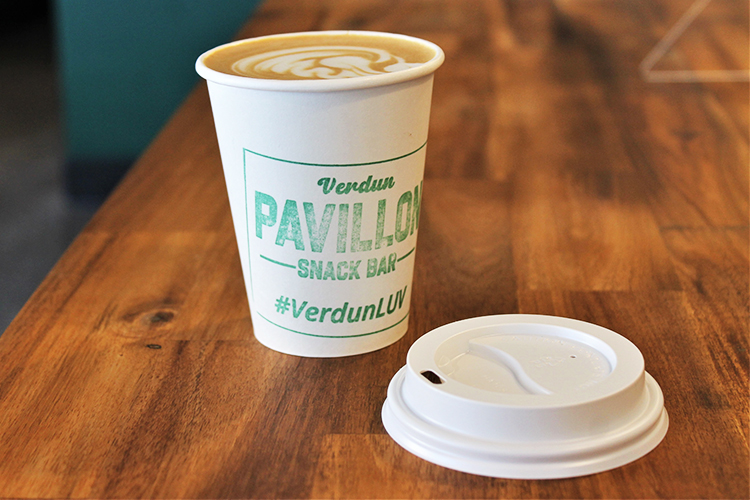
This latte was made by Tom Sulik, manager and barista at Pavillon Snack Bar in Verdun. Photo by Britanny Clarke.
